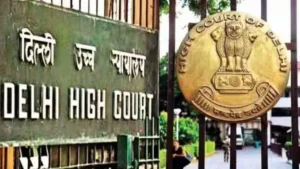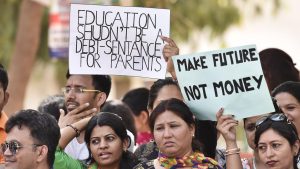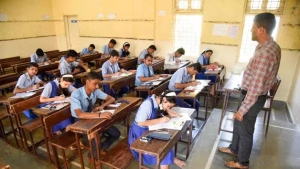New Delhi – In a significant move aimed at addressing mounting parental concerns over arbitrary fee increases, Delhi Education Minister Ashish Sood announced on Monday the formation of dedicated committees to conduct comprehensive audits of private schools across the national capital. The Delhi Private Schools Audit initiative represents one of the most extensive investigations into educational institutions’ financial practices in recent years, potentially affecting hundreds of schools and thousands of families across the city.
The announcement of Delhi Private Schools Audit comes amid growing complaints from parents about unexplained and substantial fee hikes that have placed increasing financial pressure on families, particularly in the post-pandemic economic environment. The Delhi Private Schools Audit committees will be headed by Sub-Divisional Magistrates (SDMs) of respective districts and include tehsildars and accounting officials, creating a multi-disciplinary approach to examining school finances.
“We have received numerous complaints from parents about arbitrary fee increases that are not justified by corresponding improvements in educational quality or facilities,” Sood stated during the announcement. “These Delhi Private Schools Audit committees will ensure transparency and accountability in how schools manage their finances and determine fee structures.”
In a parallel development that underscores the government’s determination to address this issue, Sood also announced a specific investigation targeting Delhi Public School (DPS), Dwarka, which will be conducted under the direct supervision of the District Magistrate of Dwarka. This focused probe comes in response to allegations of particularly significant “unregulated” fee hikes at this prominent educational institution.
Structure and Composition of Delhi Private Schools Audit Committees
The Delhi private schools audit initiative follows a decentralized approach, with separate committees formed for each administrative district of the national capital. This structure ensures that local officials familiar with their district’s schools will be directly involved in the investigation process. Each committee will operate under the leadership of the respective Sub-Divisional Magistrate, providing administrative authority to the audit process.
The inclusion of tehsildars—revenue officials responsible for maintaining land records and collecting revenue—suggests that the audit will examine not just fee structures but potentially also land use agreements and property tax compliance, as many private schools in Delhi operate on land leased at concessional rates with specific conditions attached. These conditions often include reservations for economically weaker sections and limitations on fee increases.
Accounting officials form the third pillar of these committees, bringing specialized financial expertise to the Delhi private schools audit process. Their involvement indicates that the examination will include detailed scrutiny of balance sheets, income statements, and financial declarations made by the schools to various regulatory authorities.
“The multi-disciplinary composition of these committees will ensure that we examine all aspects of school finances—from revenue collection to expenditure patterns to compliance with existing regulations,” a senior official from the Education Department explained. “This comprehensive approach distinguishes the current Delhi private school audit from previous, more limited examinations.”
While the announcement of Delhi Private Schools Audit, specified the formation of these committees and their general structure, Minister Sood did not provide a specific timeline for the completion of the Delhi Private Schools Audit or the submission of reports. This open-ended approach has raised questions about the potential duration and depth of the investigations.
Special Investigation into DPS Dwarka: A Case Study
Among the hundreds of private schools that will undergo the Delhi private schools audit, DPS Dwarka has been singled out for special attention. The prestigious school, part of the nationwide Delhi Public School network, will face a dedicated investigation headed by the District Magistrate of Dwarka rather than being included in the general district-level audit.
This exceptional focus suggests that the allegations against DPS Dwarka may be particularly serious or numerous. According to parents’ groups that have been campaigning against fee hikes, the school allegedly increased its fees by approximately 15-20% over the past academic year without providing adequate justification or following proper consultation procedures.
“The case of DPS Dwarka represents exactly the kind of situation that necessitates this Delhi private school audit,” Minister Sood remarked during the announcement of Delhi Private Schools Audit. “When prestigious institutions that should be setting standards for others appear to disregard regulations on fee structures, it undermines the entire educational ecosystem.”
The school has previously defended its fee adjustments as necessary to meet rising operational costs, including teacher salaries, infrastructure maintenance, and technological upgrades. However, parents have questioned the timing and scale of these increases, particularly given the economic challenges many families continue to face in the wake of the pandemic.
The special investigation will examine whether DPS Dwarka’s fee hikes comply with the Delhi School Education Act and Rules (DSEAR), which require schools to justify any increase in fees and limit such increases to reasonable levels related to actual increases in expenditure. The Delhi private schools audit of this particular institution may serve as a precedent for how similar cases at other schools will be handled.
Legal Framework Governing School Fees in Delhi
The Delhi private schools audit initiative operates within a complex legal framework that has evolved over decades of litigation and regulatory development. Understanding this framework is essential for appreciating the potential impact and limitations of the current audit process.
The Delhi School Education Act and Rules (DSEAR) of 1973 provides the primary legislative foundation for regulating private schools in the national capital. Section 17(3) of the Act empowers the Director of Education to regulate various aspects of school operations, including fee structures. Under this authority, multiple orders and circulars have been issued over the years attempting to curb arbitrary fee increases.

A landmark development came in 2011 when the Delhi High Court, in the case of Delhi Abhibhavak Mahasangh v. Government of NCT of Delhi, established guidelines for fee regulation that continue to influence policy today. The court ruled that while schools have the autonomy to set their fee structures, they must do so transparently and justifiably, with any increases directly linked to actual increases in expenditure.
More recently, in 2018, the Delhi High Court upheld the government’s authority to audit the accounts of private schools built on land allotted by government agencies. This ruling specifically noted that schools operating on such land are obligated to obtain prior approval from the Directorate of Education before implementing fee increases.
“The current Delhi private schools audit initiative builds on this established legal framework,” explained a legal expert familiar with education law. “The committees have clear authority to examine financial records and assess compliance with existing regulations governing fee structures.”
However, previous attempts at comprehensive audits have faced challenges, including litigation by school associations claiming autonomy and administrative delays in processing the vast amount of financial data involved. The success of the current Delhi private schools audit will depend on how effectively the committees can navigate these potential obstacles.
Scope and Methodology of the Audit Process
While the announcement of the Delhi private schools audit committees provided an outline of the initiative, education department officials have subsequently clarified aspects of the audit’s scope and methodology. According to these clarifications, the committees will focus on several key areas:
- Fee Structure Analysis: The Delhi private school audit will examine fee increases over the past five academic years, assessing whether they comply with regulatory guidelines and whether they are justified by corresponding increases in expenditure.
- Financial Statement Review: Committees will scrutinize balance sheets, income statements, and cash flow documents to verify that schools are accurately reporting their financial position and not concealing surplus funds.
- Fund Utilization: The audit will investigate how schools utilize the fees collected, particularly focusing on whether funds designated for specific purposes (such as infrastructure development or technology upgrades) are being used accordingly.
- Compliance with Previous Orders: Many schools have been subject to specific orders regarding fee refunds or restrictions on increases. The Delhi private school audit will assess compliance with these existing directives.
- Reserve Fund Management: Schools are required to maintain certain reserve funds for specific purposes. The audit will examine whether these funds are being maintained and utilized appropriately.
The methodology for the Delhi private schools audit is expected to involve both document review and physical verification. Schools will be required to submit comprehensive financial records to the audit committees, including fee structures, salary statements, infrastructure expenditure details, and bank account information.
“This will be a data-driven process,” a senior education department official explained. “The Delhi private schools audit committees will begin by analyzing the submitted documents, identify potential irregularities, and then conduct on-site verifications as necessary to resolve any discrepancies.”
Schools found to be non-compliant with regulations could face a range of consequences, from financial penalties to more severe administrative actions. The Delhi private schools audit could potentially result in mandated fee refunds to parents if charges are found to be unjustified or excessive.
Parents’ Perspective on the Delhi Private Schools Audit
For many parents across Delhi, the announcement of the Delhi private schools audit comes as a welcome, if overdue, development. Parent associations have been campaigning for stricter regulation of private school fees for years, with many families reporting financial strain due to annual fee increases that significantly outpace inflation.


“Every April, we brace ourselves for the notification of fee increases, which have become almost routine regardless of whether there are actual improvements in educational quality,” said Sumit Vohra, founder of a prominent parents’ advocacy group. “The Delhi private schools audit is an acknowledgment that this issue requires serious government intervention.”
Parents have particularly pointed to the lack of transparency in how fee increases are determined. Many schools provide limited justification for hiking fees, often citing vague reasons such as “quality improvement” or “infrastructure development” without specific details on how the additional funds will be utilized.
The special investigation into DPS Dwarka has resonated with parents across the city who see it as symbolic of wider issues. “It’s not just about one school,” remarked Priya Sharma, whose children attend a private school in South Delhi. “The problems identified at DPS Dwarka through the Delhi private schools audit will likely reflect systemic issues across many institutions.”
Parent associations have expressed hope that the audit will result not just in one-time corrections but in lasting structural changes to how school fees are regulated. They advocate for more parental involvement in fee determination processes and greater transparency in financial reporting from schools.
However, some parents have expressed skepticism about the lack of a specific timeline for the Delhi private schools audit. “Without a clear deadline, there’s concern that the process might drag on indefinitely or lose momentum,” noted one parent representative. “We need prompt action because families are making financial decisions now based on current fee structures.”
Schools’ Response and Concerns

The announcement of the Delhi private schools audit has elicited mixed responses from school administrators and educational organizations across the capital. While no official statement has been issued by school associations yet, individual administrators have expressed both understanding of the need for accountability and concerns about potential overreach.
“Private schools operate in a challenging environment with rising costs for quality teachers, technology infrastructure, and facility maintenance,” explained the principal of a prominent South Delhi school who requested anonymity. “We welcome transparent processes but hope the Delhi private school audit will consider these legitimate cost increases when evaluating fee structures.”
Some school administrators have pointed out that the timing of the audit coincides with the beginning of a new academic session, when schools are already managing numerous administrative tasks. They have expressed concern that responding to extensive audit requirements could divert resources from educational priorities.
A particular concern raised by several institutions relates to the composition of the Delhi private school audit committees. “While SDMs and revenue officials are certainly capable administrators, they may not have specialized knowledge of educational economics,” noted an education consultant who advises several private schools in Delhi. “We hope these committees will also consult educational experts who understand the unique financial challenges schools face.”
Schools are also concerned about the potential for a one-size-fits-all approach that fails to account for the diversity among private educational institutions in Delhi. The capital’s private schools range from elite institutions charging substantial fees to budget private schools serving middle and lower-middle-class families, each with different financial models and challenges.
Despite these concerns, many school representatives have acknowledged the importance of financial transparency and expressed willingness to cooperate with the Delhi private schools audit process, provided it remains fair and balanced.
Potential Outcomes and Impact
The Delhi private schools audit could have far-reaching consequences for education in the national capital, depending on its findings and how effectively recommendations are implemented. Several potential outcomes merit consideration:
Immediate Fee Corrections: Schools found to have implemented unjustified fee increases might be required to roll back these hikes or provide refunds to parents. Such immediate corrections could provide financial relief to thousands of families across Delhi.
Structural Reforms: Beyond addressing individual cases, the Delhi private school audit could lead to systemic changes in how fee structures are determined and approved. This might include more standardized approval processes or mandatory transparency measures.
Legal Challenges: Based on precedent, school associations might contest the audit findings or the government’s authority to implement certain recommendations. The legal battles that could follow might delay implementation of reforms.
Enhanced Parental Involvement: The audit process could create frameworks for more meaningful parental participation in financial decision-making at schools, addressing a long-standing demand from parent associations.
Market Corrections: Public awareness generated by the Delhi private school audit might create market pressures on schools to moderate fee increases even before formal regulations are enforced, as parents become more informed consumers.
Education experts suggest that the most significant impact of the Delhi private schools audit may be its deterrent effect. “Even if the audit process moves slowly, the knowledge that financial practices are under scrutiny may discourage schools from implementing arbitrary fee hikes in the coming academic year,” noted an education economist.
The special investigation into DPS Dwarka could serve as a particularly influential case study, potentially establishing precedents for how similar cases at other prestigious institutions are handled. The high visibility of this case ensures that its outcomes will be closely watched by schools, parents, and policy makers alike.
Final Remarks: A Potential Turning Point for Educational Accountability
The Delhi private schools audit initiative announced by Education Minister Ashish Sood represents a significant move toward addressing long-standing concerns about financial transparency and fee regulation in the capital’s private education sector. By establishing district-level committees headed by Sub-Divisional Magistrates and launching a special investigation into the practices at DPS Dwarka, the government has signaled its commitment to tackling this contentious issue.
For parents who have long campaigned against arbitrary fee increases, the Delhi private school audit offers hope for both immediate relief and long-term structural reforms. The comprehensive nature of the planned audits, examining not just fee structures but also financial management practices and compliance with existing regulations, suggests a more thorough approach than previous regulatory efforts.
However, the effectiveness of this initiative will ultimately depend on how well the audit committees navigate the complex terrain of educational finance, how they balance the legitimate operational needs of schools with the financial concerns of families, and how successfully they translate their findings into implementable policies.
The absence of specific deadlines for completing the Delhi private schools audit and submitting reports remains a concern, raising questions about when tangible outcomes might materialize. Nevertheless, the mere announcement of these comprehensive audits may already be influencing school behavior as the new academic session approaches.
As the audit committees begin their work across Delhi’s districts and the special investigation into DPS Dwarka proceeds, all stakeholders in the educational ecosystem will be watching closely. The findings and recommendations that emerge from this Delhi private schools audit could potentially reshape the financial relationship between private schools and families, establishing new standards for transparency, accountability, and fairness in educational finance across the national capital.

